50 Subtle Signs You May be Sick

As a doctor, I know that it's not always obvious that you are ill. Sometimes, symptoms and signs can creep up on you. You just aren't sure whether to bother people like me. Remember: You're not a hypochondriac; you're looking after yourself! If you suffer from anything on this list, your doctor will be pleased to see you and relieved you made that appointment! It's always the case that an early diagnosis gives the best chance of cure, so if you think something isn't right, listen to your body and go and see a professional. Do you recognize any of the following scenarios? (And remember, Body Network provides the latest information from top experts, new research, and health agencies. However, our content is not intended to replace professional guidance. Always consult your healthcare provider directly for questions about your medication or any other health concerns.)
You Keep Turning Up the TV

…because you just can't hear it. Is that just old age deafness creeping up on you? Or could your hearing loss be due to anything else? Check with an ENT if you're concerned.
Your Toes Feel Cold All the Time
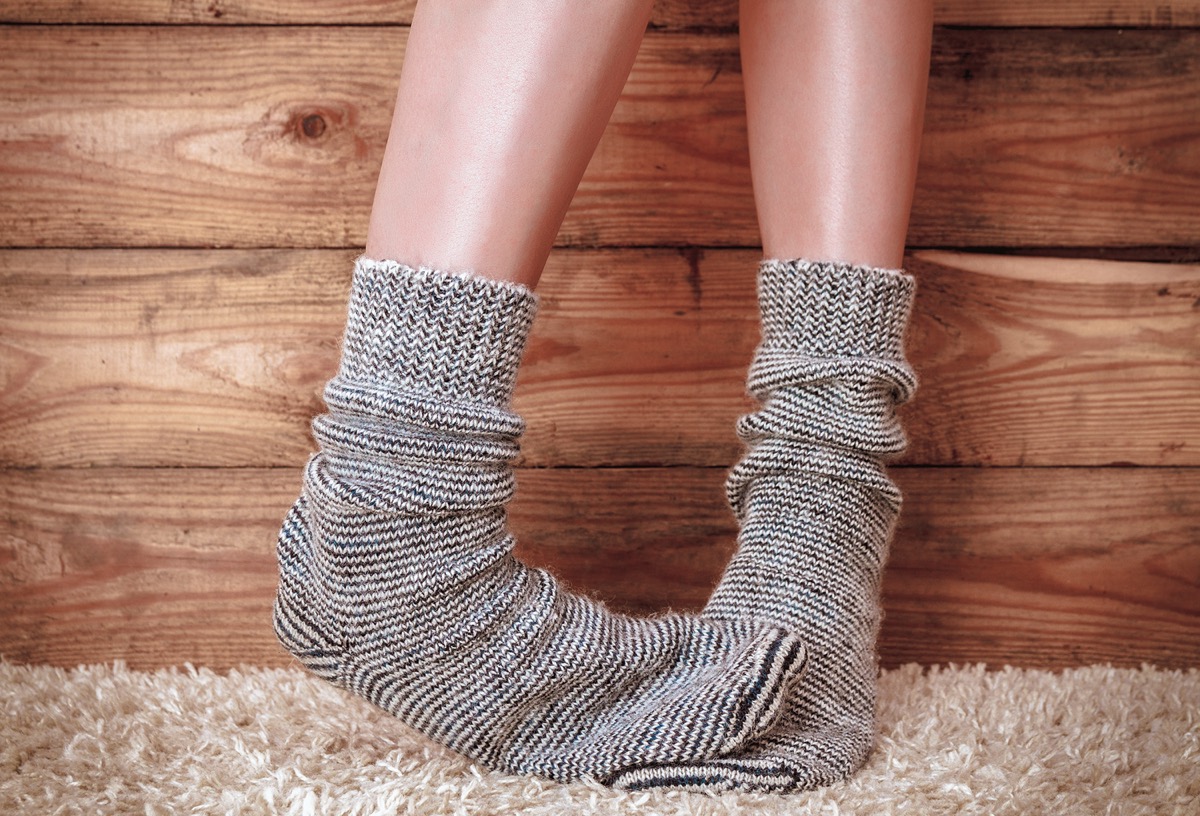
…but when you touch them, they feel the right temperature. This might be peripheral neuropathy, "a result of damage to the nerves outside of the brain and spinal cord (peripheral nerves), that often causes weakness, numbness, and pain, usually in your hands and feet," per the Mayo Clinic. See your doctor!
You Can't See to Drive at Night

Night blindness is very common. Old age causes hardening and yellowing of the lenses. This can be made worse by dry eyes. Get it checked out. Worst case scenario, it's a rare condition called retinitis pigmentosa—or maybe you simply need a new set of headlights!
You Develop a Multitude of Sleeping Problems

…and can't get off to sleep, can't stay asleep, sleep fitfully, wake early in the morning, feel tired and refreshed. Sleep disorders, including snoring and sleep apnea, as well as other sleep disorders, are very common. You may need professional help.
You Go to Make a Cup of Tea and the Teabag is Already in the Cup[

Memory problems are all too common. Forgetful? Tired? Menopause? Or could it be dementia? If you're experiencing memory loss that disrupts your daily life, discuss the issue with your doctor.
You Can't Read a Text Message Without Reaching for Your Glasses

Are your eye tests up to date? Healthy eyes, healthy body!
You Keep Napping During the Day

Is that because of all those bad nights' sleep? She says you're snoring—but could this be obstructive sleep apnea, in which the airway behind the tongue collapses when you breathe in, reducing or even stopping your airflow for up to a minute. Sleep apnea has been associated with high blood pressure and cardiovascular disease, according to the National Sleep Foundation. Researchers think that's because the condition causes repeated oxygen deprivation that stresses the blood vessels and heart.
Your Finger and/or Toenails are Going Yellow
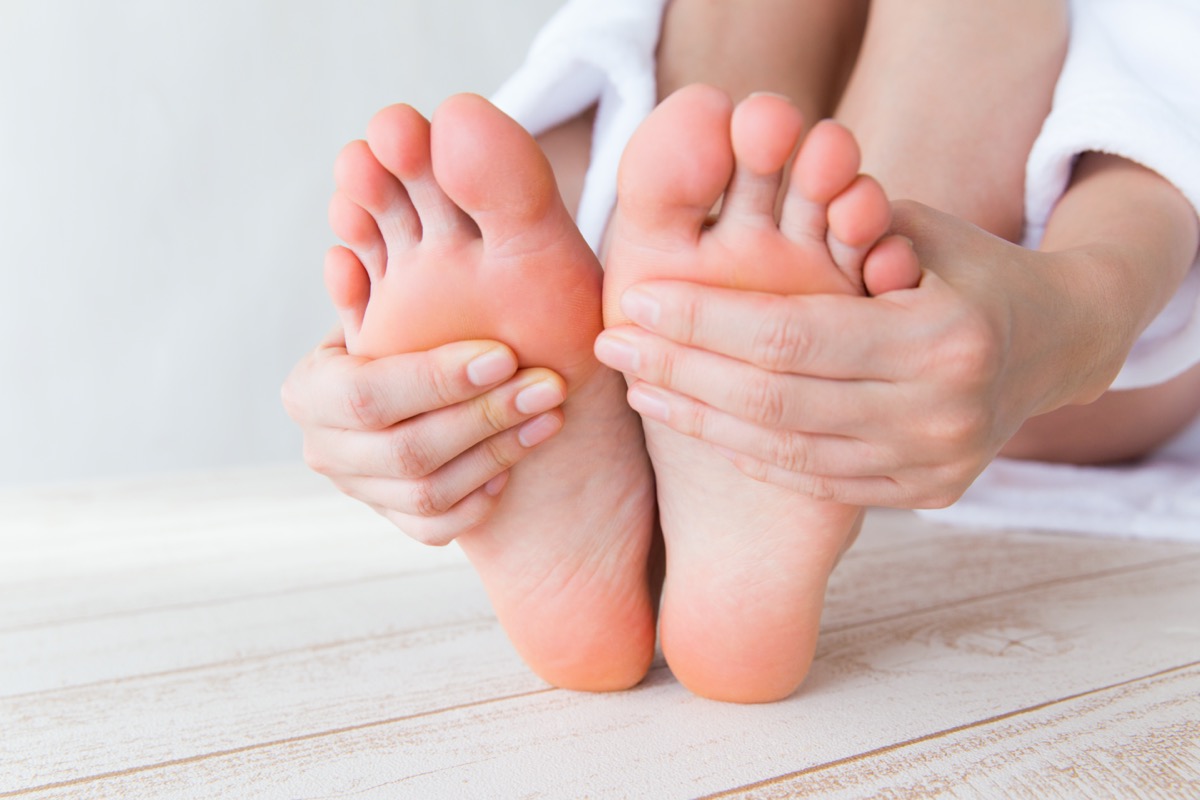
Fungal nail infections may mean you have low levels of immunity. Time for a check-up.
You Can't Stop Scratching
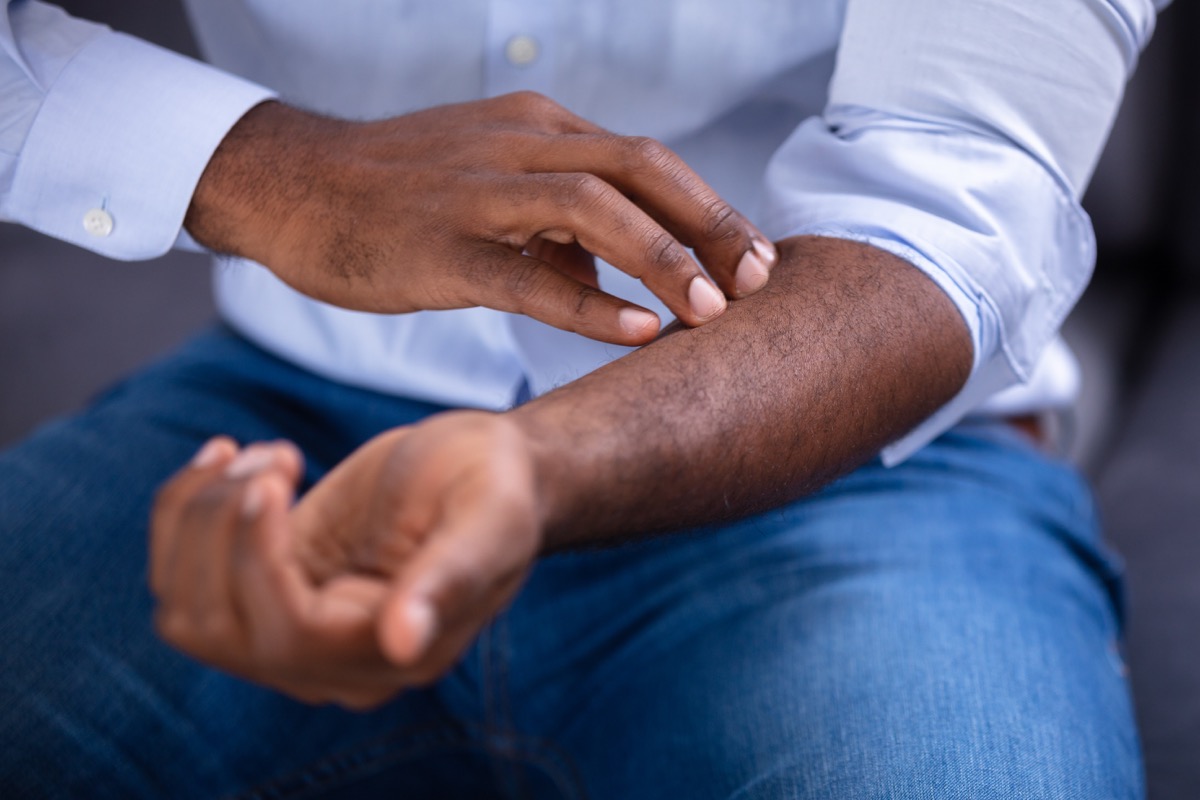
There's something wrong with the skin you're in, and there are a million causes for itchy skin—known as generalized pruritis: Allergies, scabies, eczema, psoriasis and liver disease. Go and get it checked.
The Shower's Blocked—Again!

And what's blocking it? Your hair—again! Hair loss—known as alopecia—has many unpleasant causes. See the doctor.
You're Female—and Growing a Beard
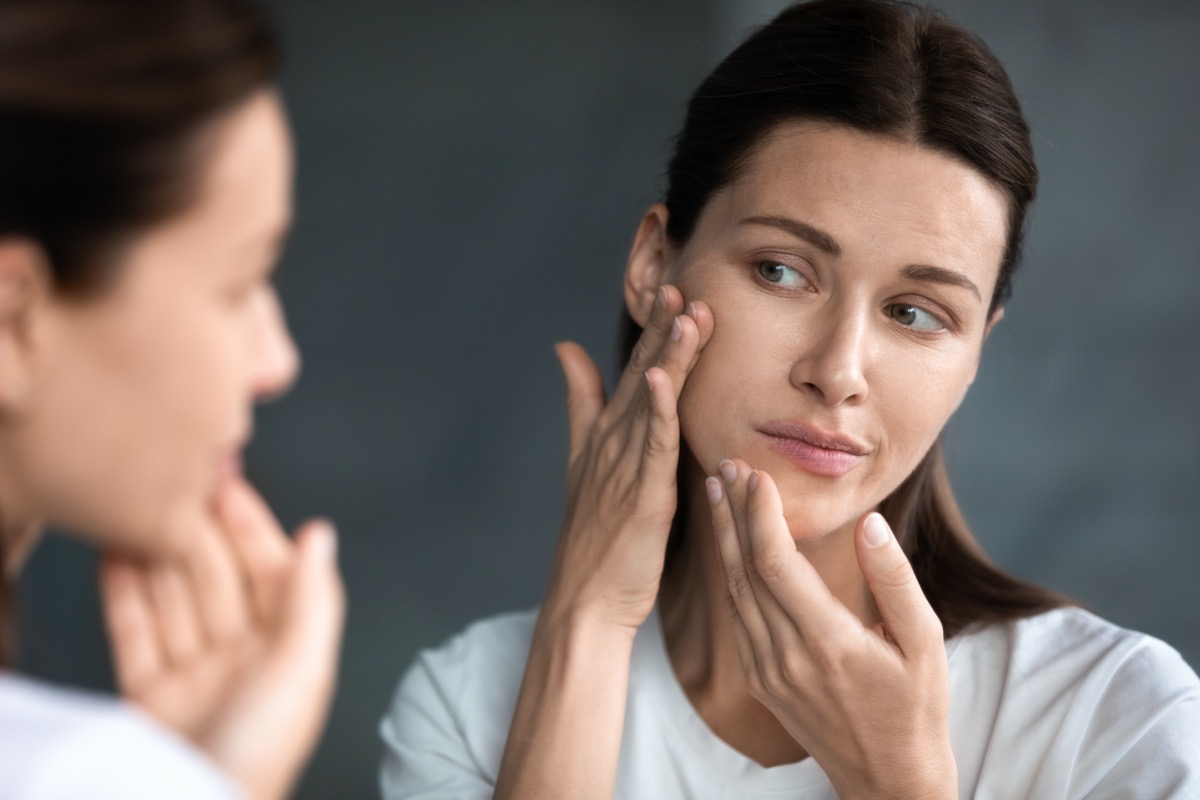
Sporting sprouty hairs on your chin? Oh dear! Unwanted hair. This can be a sign of too many male hormones. It's quite common at menopause—however, get it checked!
You Keep Needing a Bigger Hat

And your shoe size is increasing. This is rare but may be due to acromegaly—caused by overproduction of growth hormone.
You Find Yourself in the Laxative Aisle

Are you really that constipated? If it's a rare occurrence, maybe you ate something funny. If it happens frequently, you may not be getting enough fiber.
You've Got the Runs

Keep running out of toilet paper? Someone has diarrhea. If this is a persisting change of bowel habit, don't be embarrassed. This is especially urgent if there is blood in your stool. Seek help!
You're Always Thirsty

Are you really that thirsty—or too thirsty? Excessive thirst can be a sign of diabetes. Go and see your doctor for a test.
You Constantly Need to Pee
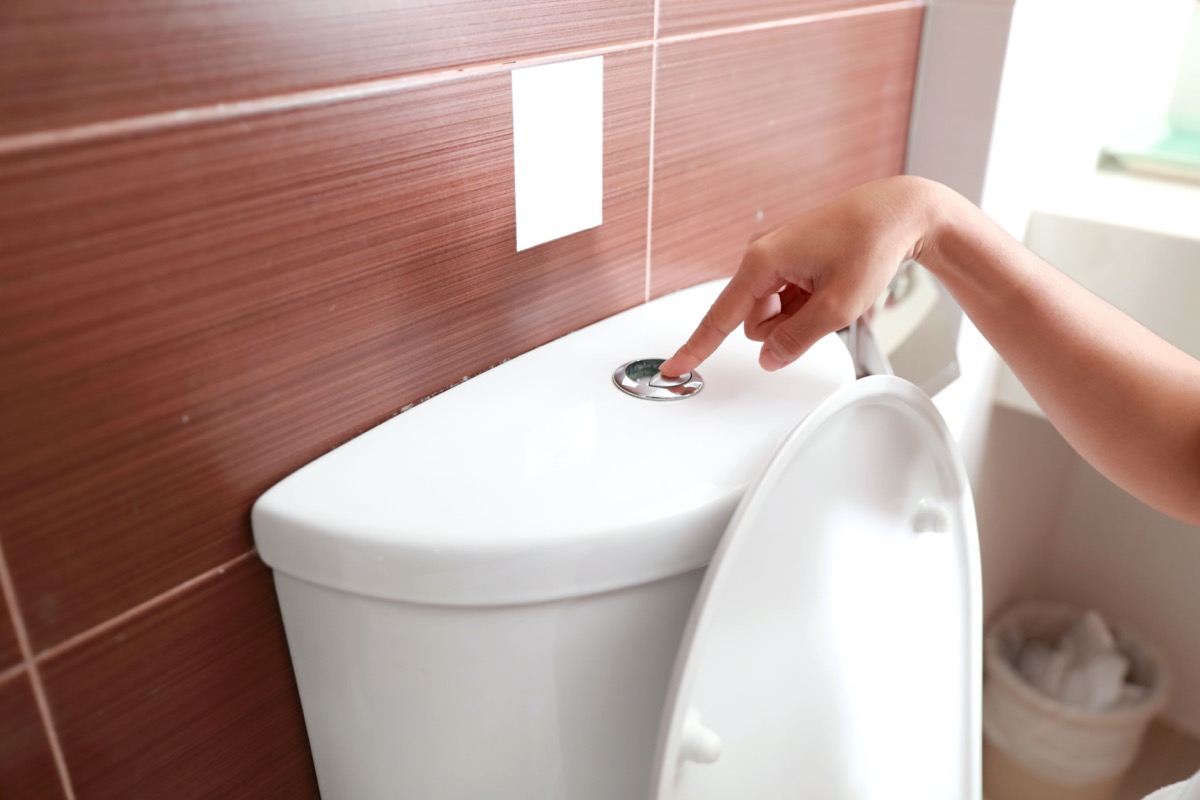
There can be many reasons for this. Diabetes is a common cause. Urinary infections and prostate problems. Don't leave it—do go and see your doctor.
It Kills You to Run for a Bus

Is this just because you're unfit—or is there something wrong with your heart or your lungs? Time for a physical.
You Wheeze in the Cold
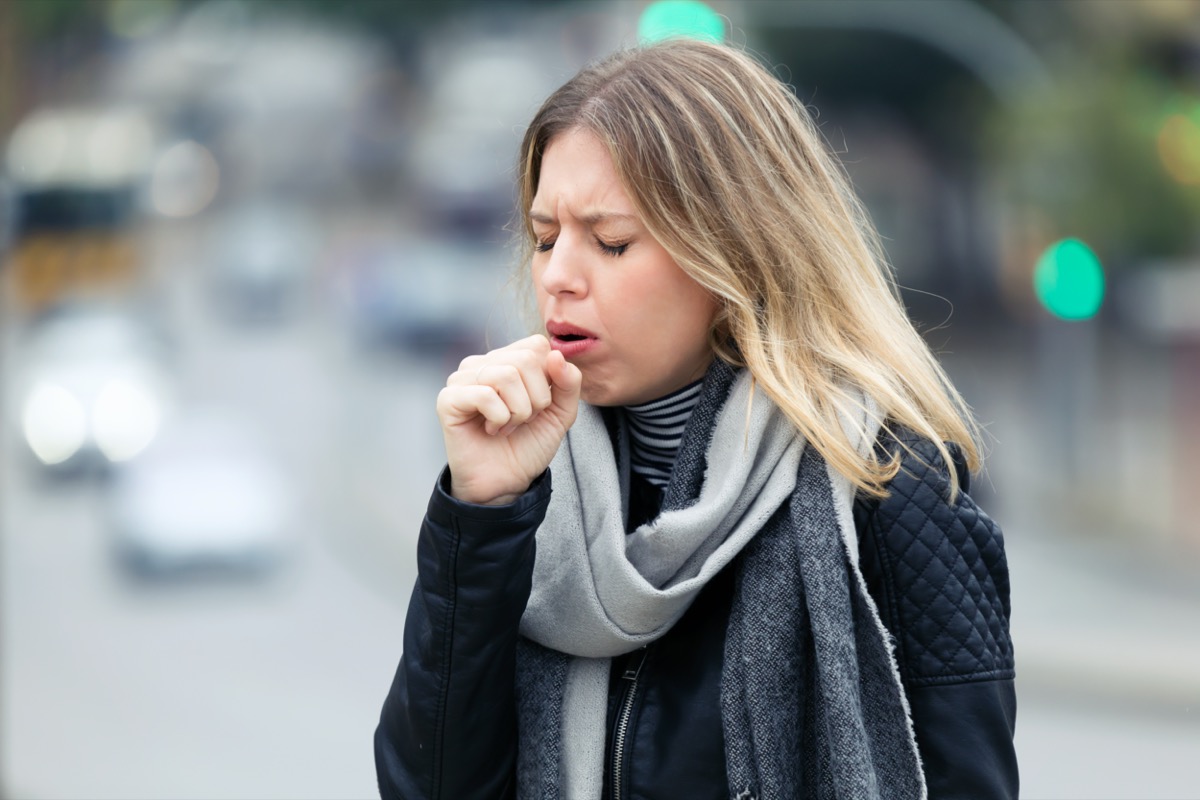
And you cough in the night. This could be asthma. It's very treatable—make an appointment.
You Constantly Reach for Tums

It's this constant indigestion. What's causing it—reflux, gastritis, or a stomach ulcer? Are you taking too many painkillers—for example, ibuprofen (a non-steroidal anti-inflammatory, NSAID), which can irritate the lining of your stomach? Don't leave this until it's too late—see your doctor.
RELATED: 15 Quick Ways to Lose Body Fat Percentage in a Week
You're Taking Too Many Types of Medication

The list of medicines on your repeat prescription can get ridiculously long. Ask your doctor for a medication review.
You Need to Wear Pads or Tampons All the Time

It's either frequent bleeding, vaginal discharge, or urine. Whatever's going on, this isn't your new normal—it's time to see the doctor.
You're Sawing Logs

I'm afraid the rest of the campsite are only too aware who is keeping everyone awake with their express-train snoring! Loud snoring is a feature of sleep apnea, which is a serious medical condition. Snoring is actually not funny, it's a serious business. It can cause heart failure and death—see the doctor.
When You Pee, it Looks Like a Pint of Guinness
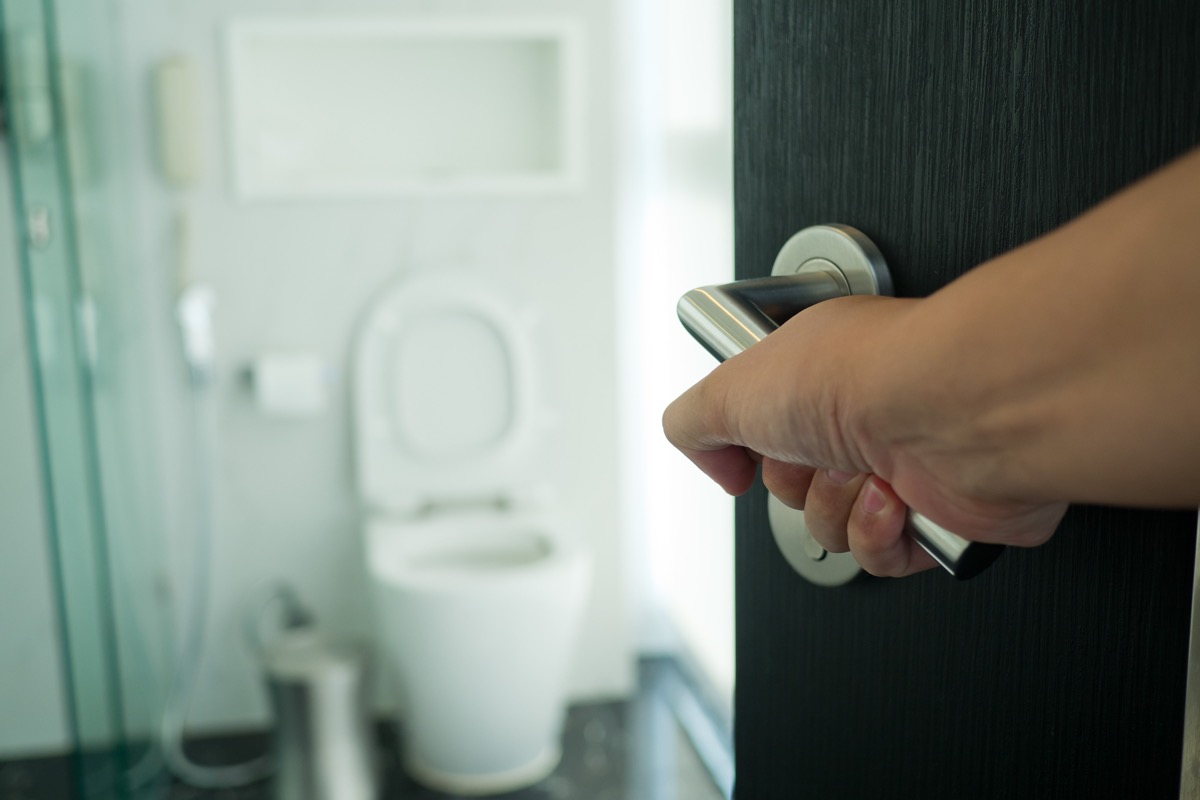
See the doctor. You might be jaundiced—it's a sign of liver disease.
Your Skin Has a Dreadful Flare-Up
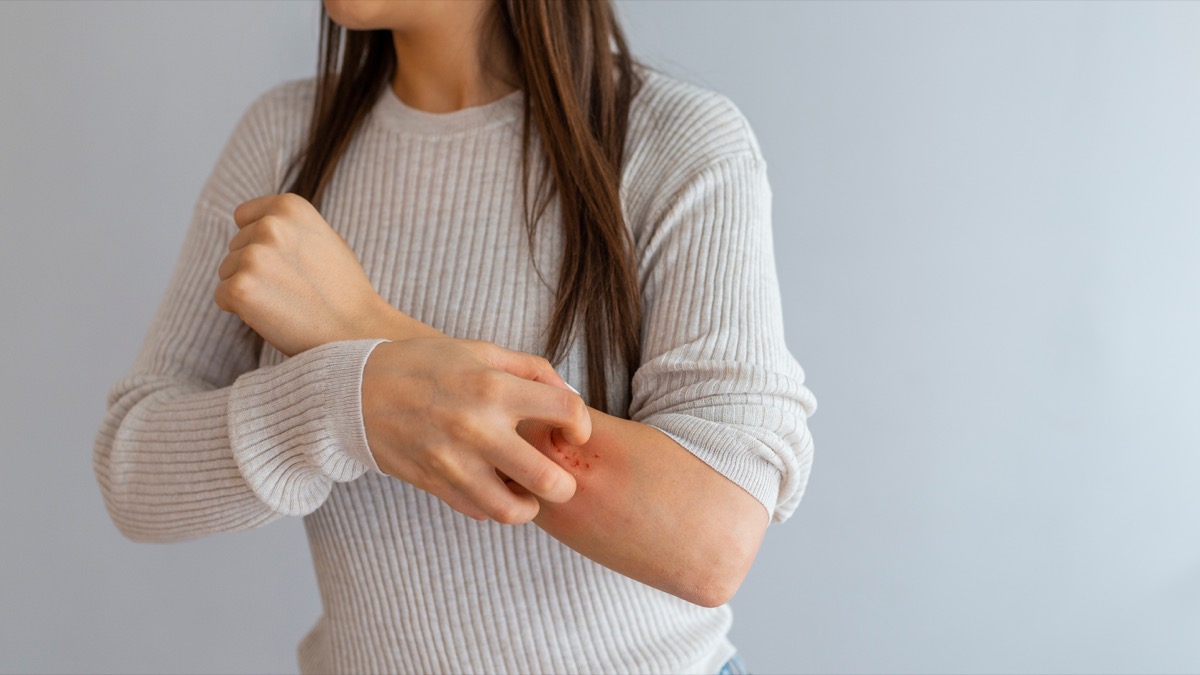
This could be due to stress, secondary skin infections, or even, rarely, a sign of HIV infection. See the doctor.
You Can't Climb Up the Stairs

Could you be anemic? Or is there something wrong with your heart and lungs? Go and see your doctor.
You Wake Up Breathless in the Night

This may be because you have slipped down off your pillows and are too flat in the bed. It's called paroxysmal nocturnal dyspnoea, and it's a sign of heart failure.
You Can't See Your Toes

…or do up your shoelaces. If your abdomen is swelling this is most likely fat—sadly—but can be due to fluid in the abdomen, a.k.a. ascites. This is very serious so you must see the doctor.
RELATED: This Plan Is How to Lose 5 Percent Body Fat In 2 Weeks
Your Bedroom Always Seems Too Hot at Night

Are you getting hot flashes or night sweats—that's likely menopause for women. Or if you get a fever at night, take your temperature regularly—this could be a PUO, a.k.a., pyrexia of unknown origin (fevers that last more than three weeks without any idea why). See your doctor.
Your Pants Slip Down Around Your Hips

Weight loss, if unintentional, always needs investigation. See the doctor.
You Feel Sick a Lot of the Time

This may be for many reasons. Check you are not pregnant. Think about any medication you are taking. In fact, sometimes it's anxiety—as people quite literally feel sick with worry. Sometimes, it has a more sinister cause.
Your Periods Stop for Three Months or More

…and you are not pregnant. This is called secondary amenorrhoea. It can happen for many reasons, and it can affect your long-term health—go and see the doctor.
You Bleed After Sex

This is called post-coital bleeding. This is always something that needs an urgent trip to the doctor. Chances are it will have an innocent —for example, a cervical ectropion, which is a spreading of cells. However, it can be a sign of cervical cancer. Like all serious illnesses, the sooner they are diagnosed, the better. Get this checked out. Don't be one of the 8 million women who have not had their smear test! It really isn't as bad as you think. Cervical smears save lives! Do something amazing for yourself, and book that test today.
You Keep Having Nose Bleeds

This is often just one of those things—however, recurrent nose bleeds can make you anemic. Sometimes nose bleeds—epistaxis—can be very difficult to control. Very rarely you can die from a nosebleed. A very heavy nosebleed can be a sign your blood isn't clotting properly or even, for example, that you have leukemia.
Your Face is Abnormally Pale

Look in the mirror, put a finger just underneath your lower eyelid, and pull it down. If this conjunctival area is abnormally pale, it can be a sign of anemia. You may also have pale creases in the palms of your hands and a pale tongue. When anemic, you are often feeling tired all the time. See the doctor.
Your Skin is Slate Grey

This is characteristic of a condition called hemochromatosis, in which abnormal levels of iron are laid down in the body. It's a genetically inherited condition. It's very treatable.
RELATED: The Ultimate Guide to Getting Fit as a Pear Body Type
Your Friends and Family are Complaining You Have Bad Breath

Halitosis can be because you have gum disease, so it's very important to brush your teeth regularly, floss, and go for check-ups and see the hygienist. Some medical conditions can be associated with unpleasant breath such as diabetes, chronic cough, smoking, and acid-reflux. Do something about this today!
Are Your Feet, Ankles, Hands or Face Swelling?
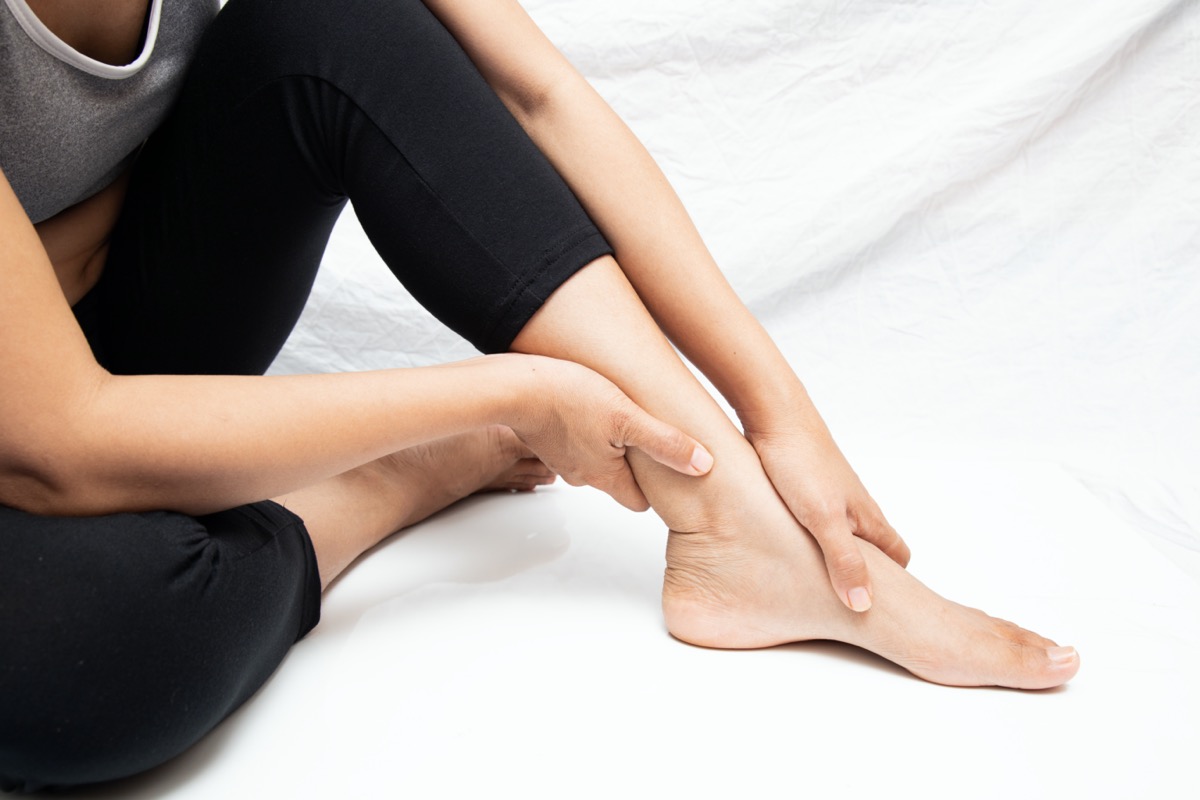
This is called edema. It can be a sign of heart failure or other problems such as liver disease. Go and get help right away.
Tired All the Time?

There is a long list of causes. Stress, anxiety, depression, and poor sleeping are all on the list. However, serious diseases such as cancer, diabetes, and heart disease also cause extreme fatigue. Go and have a check-up.
Is Your Voice All Croaky?

This can be due to nodules on your vocal cords, smoking, thyroid disease, or even cancer. Have you had this assessed?
Are You Watching Your Moles?

Any changes must be reported. Remember your ABCDs:
- Asymmetry – is your mole asymmetrical?
- Border – does it have an irregular border?
- Color – is the color uniform?
- Diameter – is it more than 6mm in diameter?
If any of this is happening, go and show your doctor.
You've Noticed a Lump

…where you don't usually have a lump. It might just be a fatty lump—a lipoma—but it could also be an enlarged lymph gland. If it's a change from what you usually have, go and see the doctor. It could be lymphoma.
RELATED: 12-3-30 Walking Method: 20 Proven Tips to Lose Weight Faster
Do You Get Panic Attacks?

These can be associated with chest tightness and a feeling of being unable to breathe. These symptoms also occur with angina, so this could be serious. Go and get this checked at the doctor.
You Bruise All Too Easily
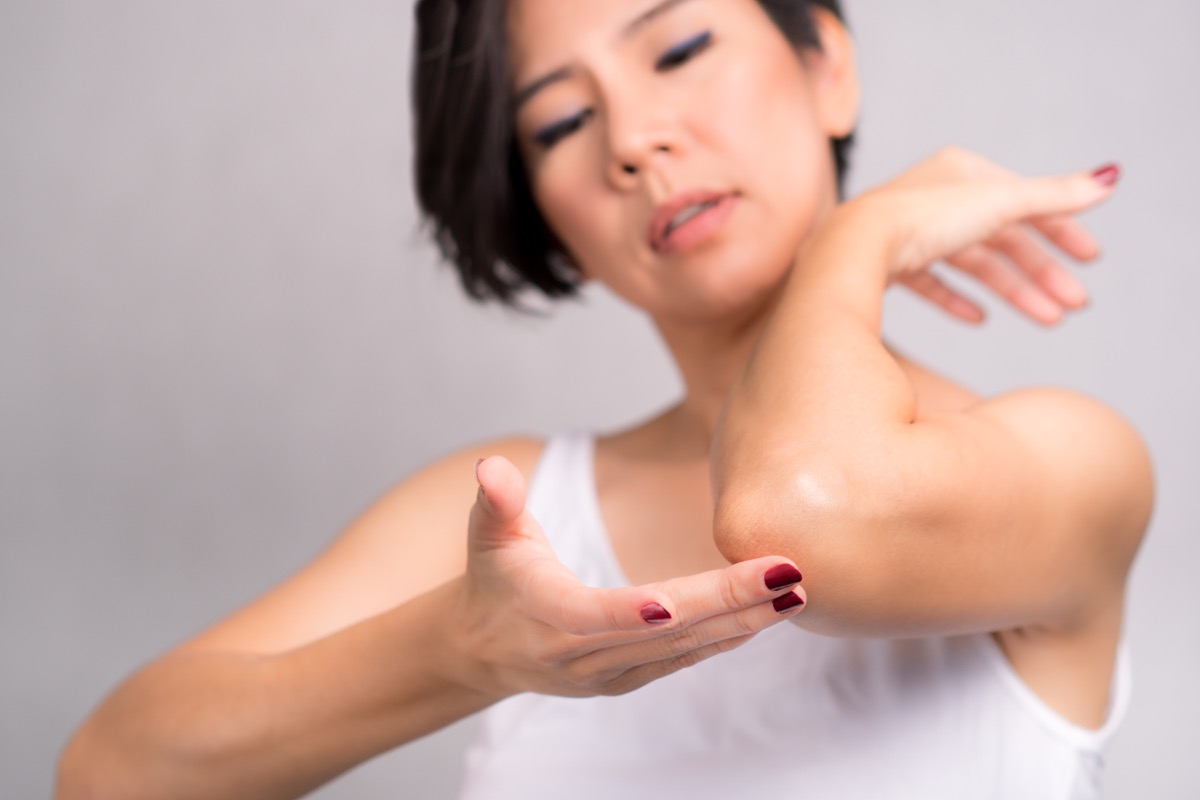
This can mean clotting problems and may signify liver disease or bleeding disorders. Don't leave it!
You Get a Metallic Taste in Your Mouth

This can happen for a variety of reasons—for example, in pregnancy or as a side effect of certain medicines such as antibiotics or medicines. Rarely, it can be due to more serious illnesses such as cancer.
You Start Getting Painful Joints
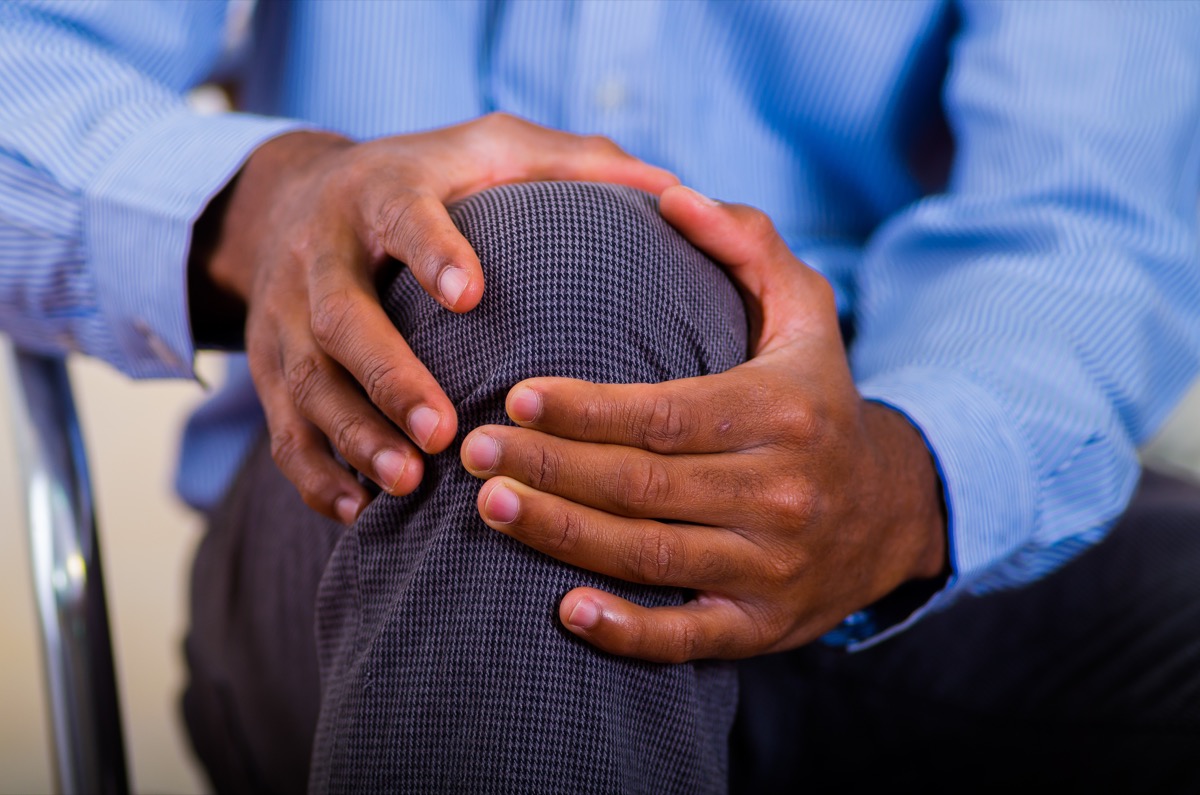
This can be one joint or several joints. Yes, osteoarthritis is the most common cause associated with aging, but other causes include gout, fibromyalgia, and rheumatoid arthritis. Gout—sorry to say this—is associated with excess alcohol. See your doc.
You Start Seeing Double

This is called diplopia. Go see your optician. Causes include dry eyes, problems with the cornea, cataracts, strokes, and even brain tumors.
You Notice Any Skin Changes on Your Breast

…like puckering or dimpling of the skin, even if you can't feel a lump. It's extremely important you see the doctor straight away. If you do have breast cancer, the earlier this is detected, the better the treatment outcome.
RELATED: Benchmark Your Progress with Our Lean Body Mass Calculator
You Have a Cough for More Than 3-4 Weeks

…which won't go away. Other important symptoms are shortness of breath and blood in the sputum. You must see the doctor right away.
If You Get Chest Pain on Exertion Which Goes Away When You Rest

This could be coronary artery disease—angina. It's because your coronary arteries are furred up inside, and the blood supply to the heart is adequate at rest but can't cope when you exercise. Don't wait—see the doctor. The next step could be a heart attack. Angina is treatable.
Any Mild Abdominal Pain That Lasts More Than a Week

…or more severe pain lasting more than 24-48 hours—it's time to get help. Arrange to see your doctor. There are numerous causes, but you must get the right diagnosis and the right treatment. And if you enjoyed this article, don't miss 20 Incredible Ozempic Success Stories of All Time.
Dr. Deborah Lee is a medical writer at Dr Fox Online Pharmacy.




